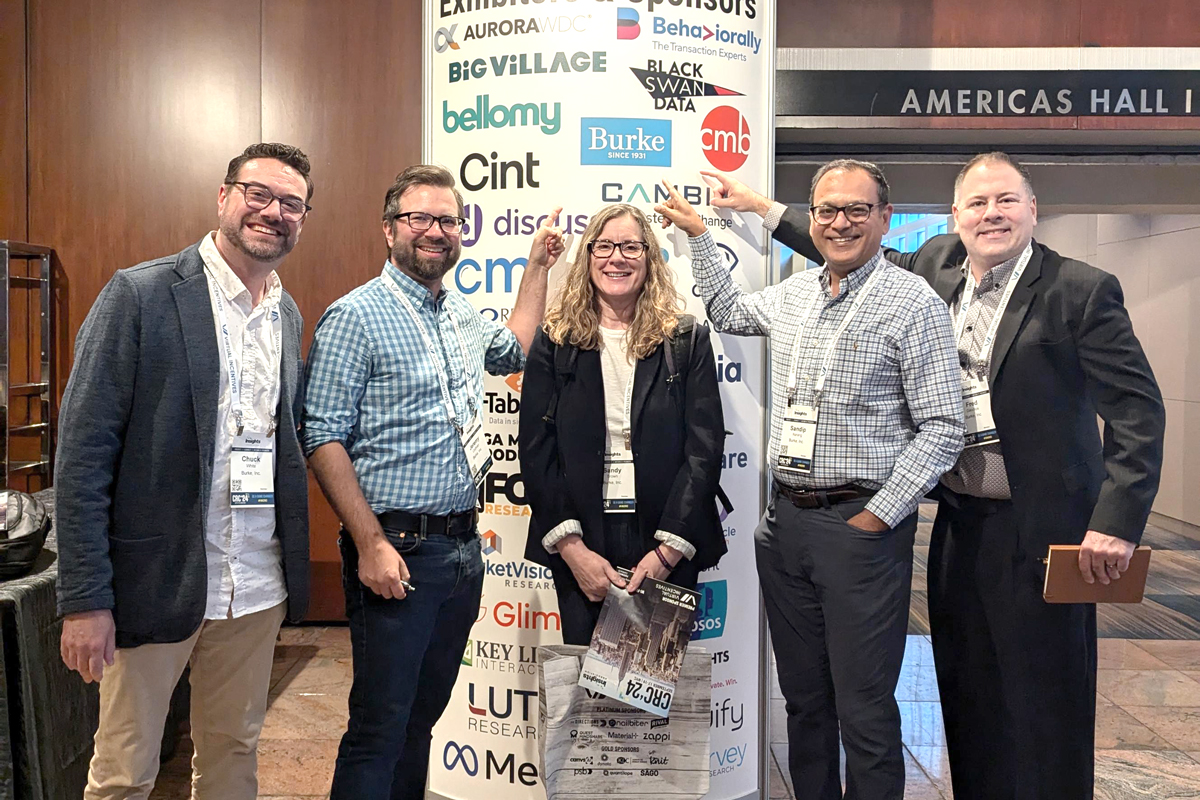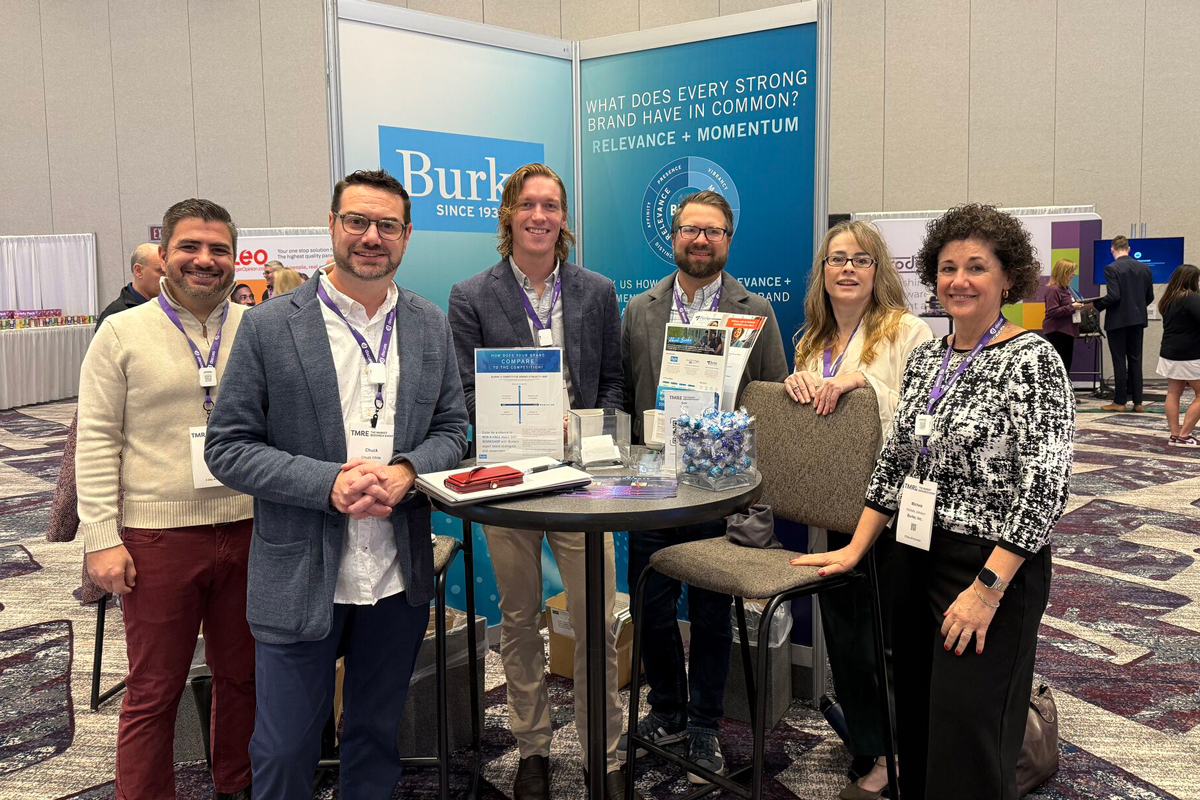
Top Takeaways from IA CRC 2024
Storytelling, Behavioral Science, and the Balance Between Creativity and Efficiency
by Jeremy Cochran
The annual Insights Association Corporate Researchers Conference (IA CRC) was held in Midtown Manhattan, and its proximity to Broadway was appropriate as storytelling and behavioral science/emotions were central topics at this year’s event.
It’s clear that in today’s information-saturated landscape, insights teams face the challenge of being overshadowed if they can’t make their findings truly resonate. By harnessing the power of storytelling, leveraging behavioral economics, and aligning consumer perspectives with overarching business goals, researchers can ensure their insights not only capture attention but also drive meaningful impact. While the IA CRC 2024 sessions and speakers covered a wide variety of topics, a few common themes emerged that underscore current shifts in the industry.
Let’s walk through these top takeaways from IA CRC 2024:
IA CRC Insight #1: The Power of Storytelling in Insights
One of the most prominent themes from the conference was the importance of storytelling. Keynote speakers Nikkia Reveilliac and Anthony Tasgal reminded us that data doesn’t move people – stories do. While many executives say they want data and numbers to make decisions, insights professionals know that raw data alone rarely drives action. Instead, insights professionals need to craft a narrative that ties the data to a larger human story and engage the emotional side of their audiences. Storytelling helps create connection, and it’s that connection that drives action.
My take – The focus on storytelling makes for a good…well…story, but it has risks if not approached holistically. Insights teams already face pressure to be data-driven; turning insights reports into artistic experiences risks alienating numbers-focused stakeholders. However, I agree that we can’t just fall back on data, but instead have the creativity to create a clear narrative and call to action.
H3: IA CRC Insight #2: Behavioral Science is in the Spotlight
A somewhat surprising takeaway from the conference was the renewed focus on behavioral science. Many speakers emphasized how understanding the underlying heuristics of consumer decision-making is more important than ever. Keynote speaker Nancy Harhut, a marketing strategist and author, highlighted several counterintuitive tactics that leverage human psychology to influence behavior, such as framing messages to emphasize potential losses (loss aversion) or offering choices to create a sense of autonomy. Many individual sessions also focused on how using behavioral economics principles in research can yield more effective insights.
My take – As a psychologist, I love keeping the focus in market research on what makes humans weird. I wonder if the renewed focus on behavioral economics is partly a reaction to the heavy focus on AI we’ve seen in the last two years, alleviating the unease and apprehension some might feel about ChatGPT by reminding ourselves that there’s still a lot about human nature we don’t understand.
IA CRC Insight #3: Increased Comfort with Using AI
AI continues to be a hot topic, but it was clear from the discussions that AI is best used as a tool to enhance, not replace, human insights. At Microsoft, for example, they’re using AI to elicit richer context in conjoint tasks by asking automated follow-up questions. AI can help streamline processes and improve data quality, but as many speakers pointed out, it’s just another tool in the toolkit.
My take – While the potential for AI remains immense, it still seems that insight teams are thinking of it as a way of doing work better, not a new way of doing work. It’s more about the quality and impact of the insights and less about the process. And, if AI can help that process (by easing respondent fatigue, scaling up qualitative work, assisting with data processing), by letting insights teams focus on strategy—all the better.
IA CRC Insight #4: What Matters Most to You When Choosing Vendors
Throughout the conference, it was clear what attendees were looking for from insights partners: concise, actionable insights and a deep understanding of their business challenges. They don’t want to see decks filled with every piece of data you collected—they want clear narratives and recommendations. Vendors that take the time to understand their category, solve specific problems, and work as an extension of the team are now table stakes for partnerships.
My take – It’s good to see that the push for narrative storytelling is not just theoretical, but something clients desire. I still think finding that balance between showing the data and telling a story is hard, but it’s clear that insights leaders are inundated with information and can use help with identifying the right insight and making it stick.
Interested in connecting with Jeremy? Don’t miss him at this year’s The Market Research Event in Orlando from December 3-5. Jeremy, along with other members of our team, would be happy to chat all things research and insights with you!

Jeremy is Burke’s Research and Development Manager. As an analytics and strategy leader with over 15 years of experience in the insights industry, Jeremy has a passion for finding new ways to solve problems and gain insights.
Interested in reading more? Check out Jeremy’s other articles:
How to Maximize the Benefits and Avoid the Pitfalls of Corporate Advocacy
You Can’t Build a New Brand With Old Tools
As always, you can follow Burke, Inc. on our LinkedIn, Twitter, Facebook and Instagram pages.








